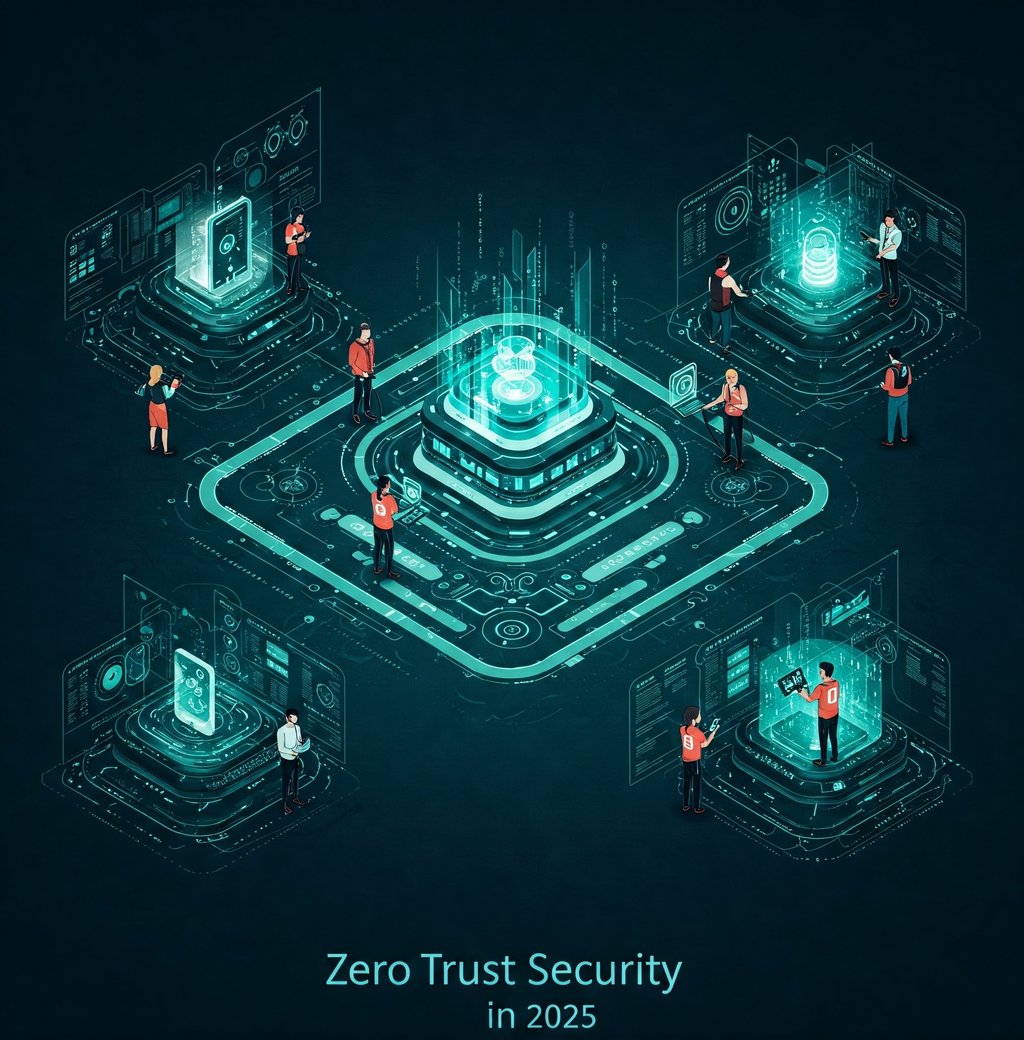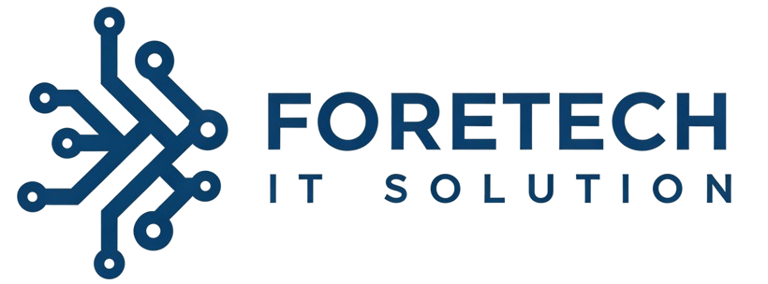Zero Trust Security in 2025: Best Practices for Unbreakable Defense
"Zero Trust Security in 2025: Best Practices for Unbreakable Defense. "Step-by-step guide to implementing Zero Trust in 2025 with AI, microsegmentation, and passwordless authentication. Includes NIST framework updates.
APP DEVELOPINGIT SOLUTIONSSOFTWARE DEVELOPEWEBSITE DEVELOPING
Dr. Prashant Singh
4/10/20252 min read


Zero Trust Security in 2025: Best Practices for Unbreakable Defense
Introduction
Cyberattacks are evolving faster than ever—ransomware costs will hit $265B by 2031, and 81% of breaches involve stolen credentials (Verizon 2024 DBIR). Legacy "trust but verify" security is dead.
Zero Trust Architecture (ZTA) is now the gold standard, with 78% of enterprises adopting it by 2025 (Gartner). This 3,000-word guide covers:
✔ What Zero Trust really means in 2025
✔ 7 Key Pillars of Zero Trust Implementation
✔ AI’s role in dynamic policy enforcement
✔ Step-by-step migration roadmap
✔ Real-world case studies (Microsoft, Google, DoD)
1. Why Zero Trust? The 2025 Threat Landscape
Top Attack Vectors Neutralized by Zero Trust
ThreatHow ZTA Stops ItPhishingBlocks lateral movement post-breachInsider ThreatsLeast-privilege access limits damageCloud JackingContinuous verification for SaaS/IaaSIoT ExploitsMicrosegmentation contains breaches
Regulatory Drivers
US Executive Order 14028 (Mandates ZTA for federal agencies)
EU NIS2 Directive (Requires ZT for critical infrastructure)
GDPR/CCPA Enhancements (Stricter access controls)
2. Zero Trust in 2025: Beyond the Buzzword
Core Principles
Never Trust, Always Verify
AuthN + AuthZ for every request (even internal)
Assume Breach
Encrypt all data, segment networks
Least Privilege
Just-In-Time (JIT) access instead of standing permissions
Evolution From 2020 to 2025
Feature2020 ZT2025 ZTAuth FactorsMFAPasswordless + Behavioral BiometricsPolicy EngineRules-basedAI-Driven Adaptive PoliciesScopeUsers/DevicesWorkloads/APIs/Data
3. The 7 Pillars of Zero Trust (NIST 800-207 Updated)
Pillar 1: Identity Verification
2025 Best Practices:
FIDO2/WebAuthn (Phishing-resistant auth)
Continuous Auth (Mouse movements, typing patterns)
Decentralized Identity (Blockchain-based credentials)
Pillar 2: Device Health
Requirements:
EDR/XDR with real-time threat scoring
Hardware-backed attestation (TPM 2.0)
Pillar 3: Microsegmentation
Implementation:
Software-Defined Perimeters (Beyond VLANs)
Kubernetes Network Policies for cloud-native apps
(Continue with Pillars 4-7: Apps, Data, Networks, Automation)
4. AI-Powered Zero Trust: The 2025 Game Changer
How AI Enhances ZTA
Use CaseExample ToolsAnomaly DetectionDarktrace, Vectra AIDynamic Policy AdjustmentsZscaler AI, Palo Alto CortexAutomated Threat HuntingMicrosoft Sentinel, Google Chronicle
Case Study: Microsoft’s AI-Driven ZT
Result: 90% faster breach containment
Key Tech:
Entra ID (Continuous access evaluation)
Security Copilot (AI analyst)
5. Implementing Zero Trust: A 6-Month Roadmap
Phase 1: Assessment (Weeks 1-4)
Asset Inventory (CWPP for cloud workloads)
Gap Analysis (CISA ZT Maturity Model)
Phase 2: Pilot (Weeks 5-12)
Start with Crown Jewels (Active Directory, ERP)
Deploy:
BeyondCorp Enterprise (Google)
Okta Identity Engine
(Continue with Phases 3-6: Full Deployment, Monitoring, Optimization)
6. 2025 Zero Trust Tech Stack
CategoryLeading SolutionsIdentityOkta, Ping Identity, Entra IDNetworkZscaler Zero Trust Exchange, Cloudflare OneEndpointCrowdStrike Falcon, Microsoft Defender XDRDataVirtru, Netskope CASB
7. Overcoming Adoption Challenges
Challenge 1: Legacy System Integration
Solution:
Sidecar proxies (for mainframe apps)
API gateways (Kong, Apigee)
Challenge 2: User Experience
Fix:
SSO + Passwordless (Reduces friction)
Self-Service Access Requests
8. Future Trends (2026-2030)
✔ Quantum-Resistant Cryptography (NIST PQC Standards)
✔ Autonomous Security Agents (AI bots enforcing ZT)
✔ Zero Trust for AI Models (Preventing LLM poisoning)
Final Checklist: Is Your ZT Ready for 2025?
☑ All users/devices authenticated per-request
☑ Network segments <50 devices (east-west traffic controlled)
☑ AI monitoring for anomalous data flows
☑ Weekly access right reviews
🚀 Next Steps:
Download CISA’s Zero Trust Checklist
Book a Free ZT Assessment
